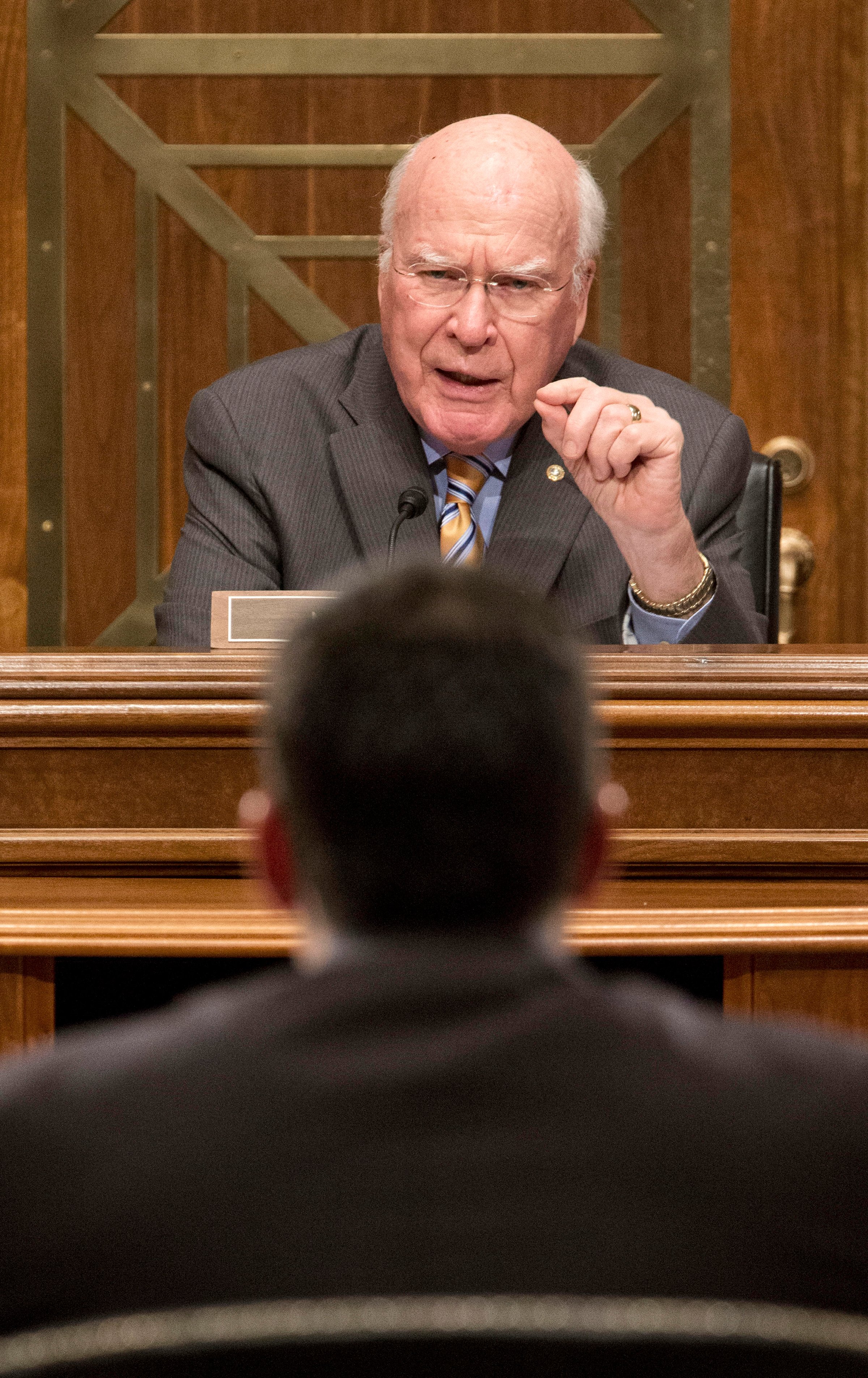
The 113th Congress is already destined to go down as one of the least productive in a generation and President Obama has gotten nowhere fast with legacy-building legislation in his second term. But there is one thing the Senate has been doing, and continues to do, and that is to confirm a record number of Obama’s judicial appointments.
Thus far in his presidency, Obama has gotten through 300 nominees, or 35 more than George W. Bush at the same point in his presidency. Pending before the Senate are 22 more nominations, four to circuit courts and 18 to the district courts, with another 18 nominations scheduled before the Judiciary Committee. There are currently 74 vacancies on the federal bench.
The swift pace of confirmation comes after Senate Majority Leader Harry Reid last November exercised what has come to be known as the “nuclear option,” for its potential to unilaterally change Senate rules to strip the minority of the ability to filibuster all of the President’s judicial nominees except those to the Supreme Court. Reid originally changed the rules in order to fill three vacancies on the DC Circuit Court of Appeals, known as the second-most powerful court in the land because it reviews most regulators appeals.
Republicans argued the court’s workload did not warrant a full bench and worried that three Democratic nominees would tilt it leftward for a generation. Until November, the court was more evenly split. Democrats argued that the time it takes to confirm appellate appointees has grown from an average of 30 days under Richard Nixon and Lyndon Johnson to 60 days under Ronald Reagan to 402 days for George W. Bush and 255 days under Obama.
After Reid triggered the nuclear option, all three DC Circuit Court appointees were confirmed. But that also opened the floodgates for other judicial appointments. Obama “has managed to turn around the break down on courts of appeals: they used to be 60% to 40% Republican and now 56% of the active judges are Democratic appointees,” says Russell Wheeler, an expert on U.S. courts at The Brookings Institution. “Obama’s going to have a solid legacy.”
So far this year, the Senate has confirmed 32 judicial nominees, compared with 14 at the same point last year. “From day one of this President’s time in office, Senate Republicans have obstructed and slowed the confirmation process,” Senate Judiciary Committee Chair Patrick Leahy, a Vermont Democrat, says. “It is a shame we have to go to such lengths to confirm highly qualified nominees, but we are making progress.”
Reid’s move prompted Republicans to invoke a series of procedural maneuvers to slow the pace of confirmations. They forced Obama to renominate all un-confirmed nominations—some 54 appointments—at the end of last year; as a courtesy the minority usually waves through outstanding nominations into the next year. They’re also insisting that all circuit court nominees get 30 hours of debate, and District Court nominees get two hours. Republicans have also exercised the right to “blue slip” nominees, meaning home state senators can veto appointees from their own states. Texas—a state with two Republican senators—has not had a judge confirmed in more than two years.
In order to get around some of these tactics, the Administration has been wooing some Republicans senators and have struck some unusual bargains. In one deal, with Georgia Republican Senators Saxby Chambliss and Johnny Isakson that smoothed the way for several Democratic Georgia nominees, Obama nominated Michael Boggs to the district court. Boggs, whose nomination the Judiciary Committee is expected to consider on Tuesday, is under fire from civil rights groups, women’s advocates and gay groups for his record as a state legislator.
And, despite GOP characterizations, few of Obama’s nominees have been overly ideological. Instead, the President has focused on increasing diversity on the courts. He’s nominated large numbers of African Americans and Hispanics. His confirmations have brought up the number of women serving on the federal bench from 25% to 32%. And he has nominated more Asian Americans than all other presidents combined.
The Administration is working overtime to find and vet nominees for all the vacancies as the clock runs out in more ways than one. At some point, as is traditional before midterm elections, Republicans will shut the door to more judicial confirmations. With the prospect of losing the Senate this fall, Obama’s window to leave a lasting impact would be very narrow indeed. But even if Democrats keep the Senate, the last two years of a presidency has seen fewer and fewer appellate-level confirmations as the minority party starts to hold those slots in the hope of regaining the White House in the next election. “Over last 30 to 40 years, it’s been understood that the party trying to gain control stop filling the slots in case they get the White House,” says C. Boyden Gray, who served as White House counsel under President George H. W. Bush. “Will they do it this year? Probably not, but beginning towards the end of next year you will likely see very few appellate nominations approved.” All of which explains why the Senate will spend much of this month and next voting on as many judicial nominations as Reid can fit into the schedule.
More Must-Reads from TIME
- Why Trump’s Message Worked on Latino Men
- What Trump’s Win Could Mean for Housing
- The 100 Must-Read Books of 2024
- Sleep Doctors Share the 1 Tip That’s Changed Their Lives
- Column: Let’s Bring Back Romance
- What It’s Like to Have Long COVID As a Kid
- FX’s Say Nothing Is the Must-Watch Political Thriller of 2024
- Merle Bombardieri Is Helping People Make the Baby Decision
Contact us at letters@time.com